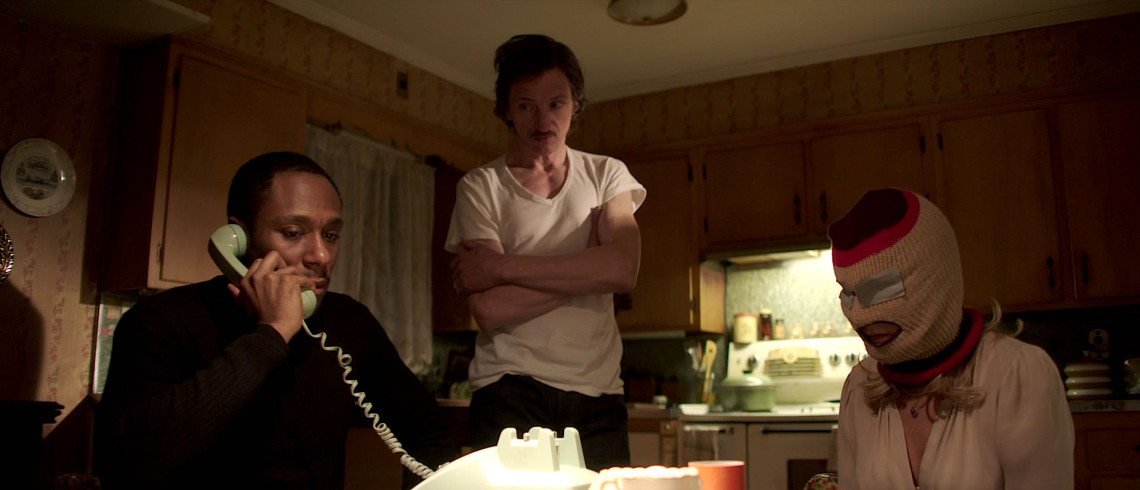Back when I was moving to the Big City, the first movie I unpacked was Jackie Brown. I escaped the towers of boxes, piles of bags, and unassembled IKEA furniture to get lost in the darkly funny and surprisingly human caper based on the Elmore Leonard novel Rum Punch. Jackie Brown holds a place of honor on my DVD shelf next to the “To Watch” pile as the last case I stored.
The tepid adaptation of another Leonard novel, The Switch, isn’t going to be joining Jackie Brown on my shelf anytime soon. Released under the unremarkable title of Life of Crime, this prequel reuses the characters of Ordell, Louis, and Melanie. The correlations stop there, as the film is nowhere near as electric as previous Leonard adaptations, such as the aforementioned Jackie Brown or Out of Sight.
The movie starts in the company of Ordell and Louis, now played by Yasiin Bey and John Hawkes, taking over the roles from Samuel L. Jackson and Robert De Niro in Jackie Brown. The amateur criminals cook up a harebrained scheme to fleece an asshole millionaire (Tim Robbins) by kidnapping his wife (Jennifer Aniston) with the help of a gun-running Nazi. Of course, not everything goes according to plan, and I’m sure something was supposed to ensue, but I got bored.
For as appealing as “the caper gone wrong” premise is, Life of Crime fails to ignite or impress. There’s no chemistry felt between most of the actors, but the movie plods along on sheer stubbornness. The lighting, colors, and pacing were a bland mess; also, I couldn’t remember a decent one-liner to quote hours after watching the movie. The disconnected music could come and go in the background, and it wouldn’t add any emotion or mood. The kindest word I could think of is “inert,” because nothing here sparks.
In what alternative universe would I consider the performance by a Friends cast member (any Friends cast member, for that matter) better than the man who played the cruel cult leader in Martha Marcy May Marlene? Yet, for all the flat Nazi jokes and Ordell double-crossing, the standouts of the movie are Hawkes and Aniston. This Louis is more meek and withheld, and Hawkes adds a gentle humanity to an unlikely criminal who falls for his captive. Meanwhile, Aniston manages to keep a sweetness about her cynical housewife character, Mickey. Unloved and ignored, she realizes it’s the end of her marriage but spurns an affair although she knows her husband is having one. We never quite get a sense of the “woman scorned” trope, and for that, Mickey becomes a fresh character in a movie full of clichés.
I fail to see the appeal of a narrative crime thriller that challenges its audience to a staring contest. How long can you keep your eyes on the screen before you roll them, check your cell phone, or close them to catch up on that sleep you missed out on earlier in the week? There’s not much to look at visually, like stepping into a tacky hotel that somehow managed to hold onto its puce wallpaper and shag carpets. A good portion of the movie is devoted to Mickey’s captivity, and I felt like I was trapped with her watching the first-floor arguments play out. Sorry, “play out” implies there was action; perhaps “chug along” fits more accurately. In short, Life of Crime is guilty of making me want to dig out my copy of Jackie Brown.




















